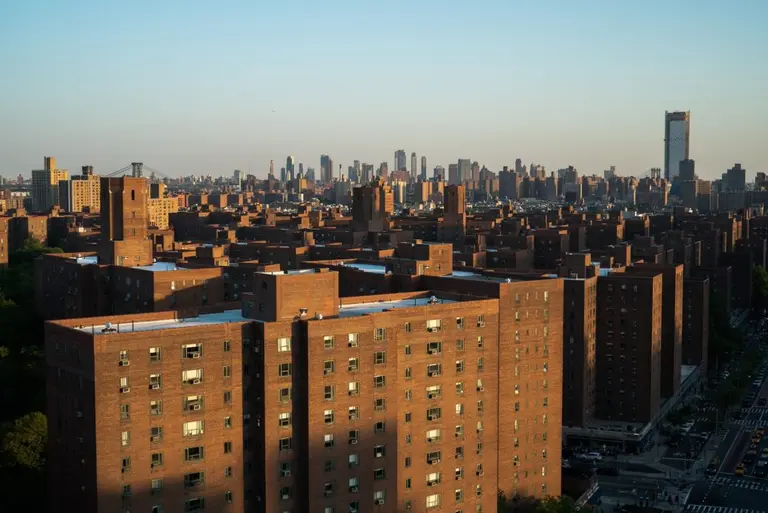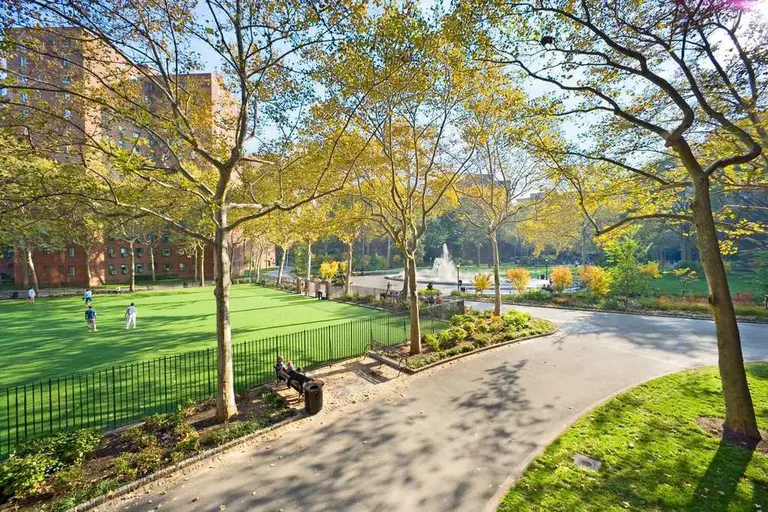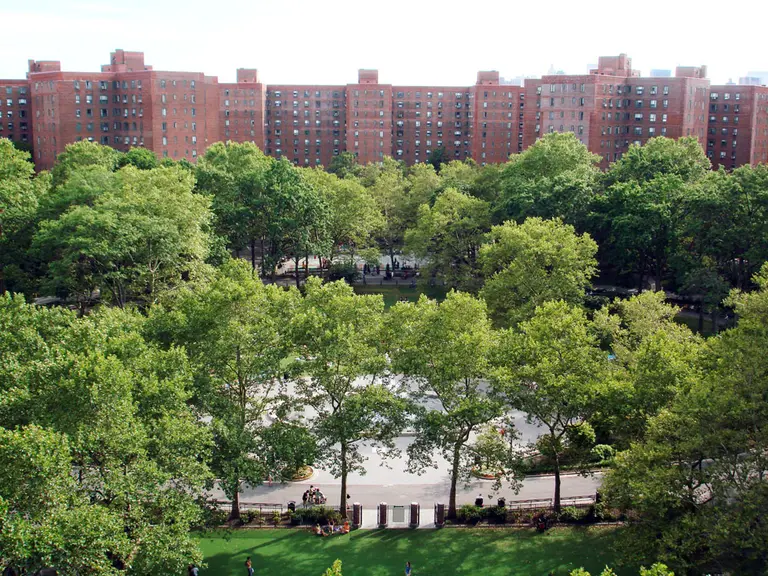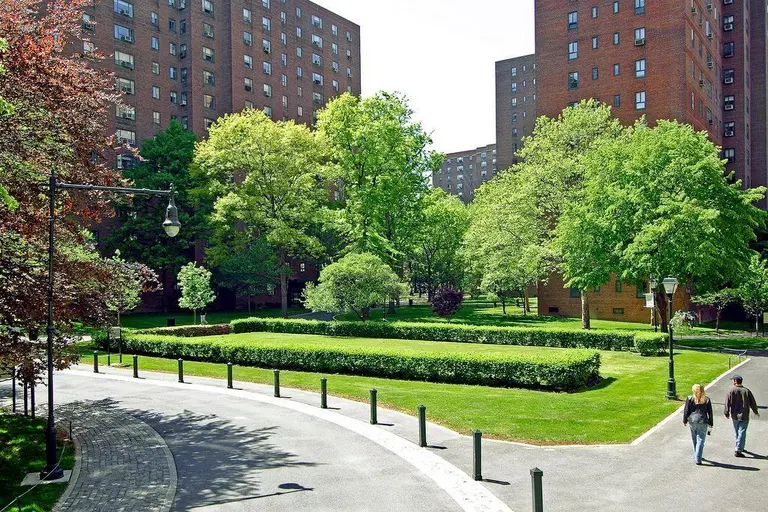Stuy Town tenants win lawsuit to keep apartments rent stabilized
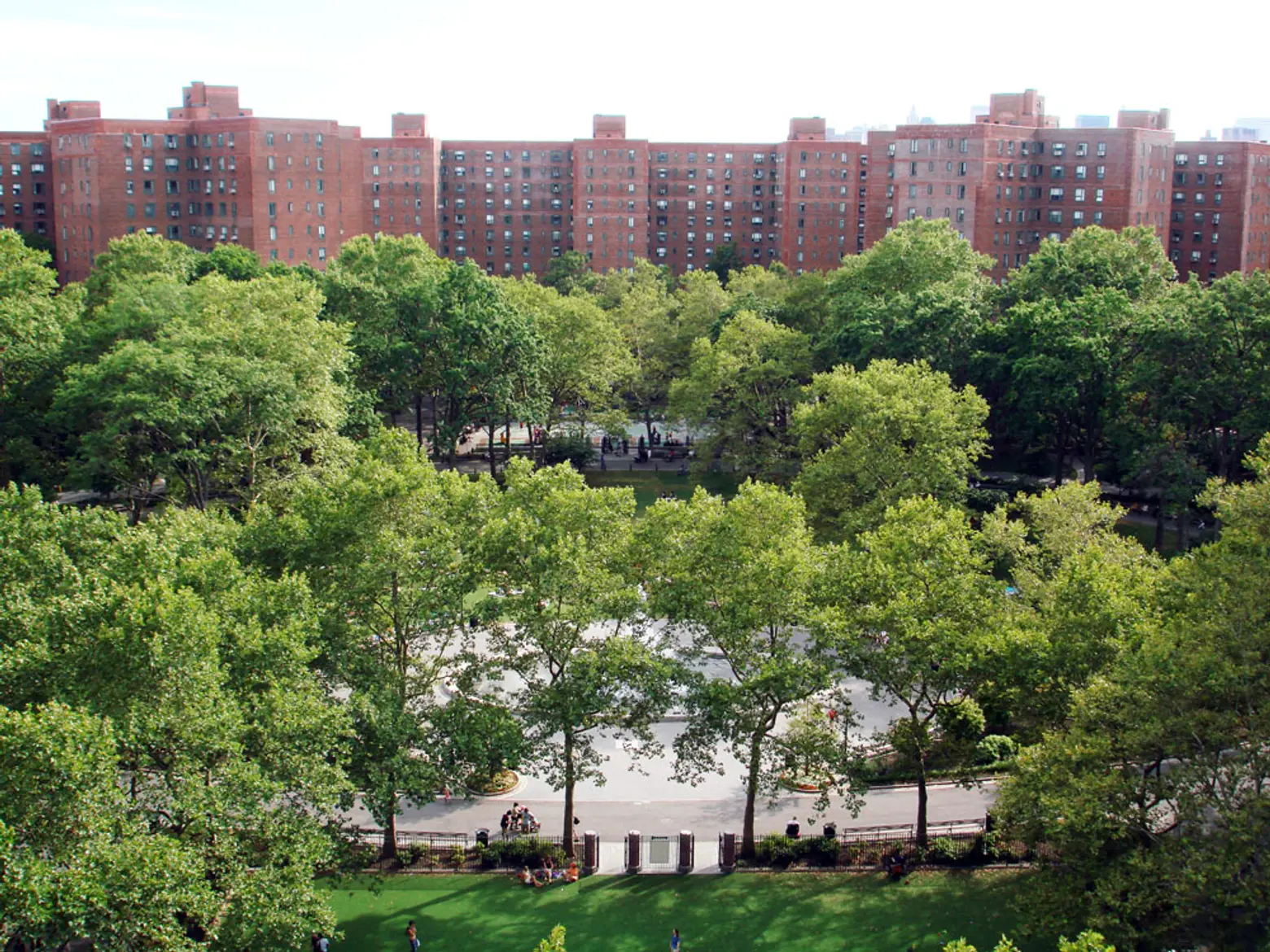
Image via WikiCommons
More than 6,000 apartments at Manhattan’s largest apartment complex will remain rent-regulated after a judge last week ruled in favor of Stuyvesant Town-Peter Cooper Village tenants. State Supreme Court Justice Robert Reed determined Stuy Town landlord Blackstone Group’s attempt to deregulate the apartments was unlawful, becoming the first major tenant-led effort against developers that tested the integrity of the state’s 2019 Housing Stability and Tenant Protection Act.
Private equity firm Blackstone acquired the property and its roughly 11,000 apartments in October 2015 for $5.4 billion. Blackstone had plans to deregulate about half of the apartments and charge market-rate rents starting in July 2020.
In March 2020, residents of Stuy Town sued Blackstone in anticipation of rent hikes. The group of tenants argued that deregulation would have violated the HSTPA, the sweeping legislation passed in June 2019 that established any apartment that was rent-regulated when the law passed would remain subject to regulation.
Since these roughly 6,200 units were rent-regulated when the legislation was approved, the tenant group argued that any attempt by Blackstone to deregulate the units was illegal.
In response to the lawsuit, Blackstone argued that previous court settlements from a 2013 case granted them the ability to take apartments off of regulation once they exceeded a high-rent threshold, also known as luxury decontrol, according to The Real Deal. The group argued the court’s ruling did not supersede the terms of the settlement.
However, Justice Reed in his statement proclaimed that Blackstone’s arguments were “based on a misconception of the law.” Reed sided with the tenants, who argued that the 2013 case verdict did not “preclude the application of future rent and eviction protections.”
Blackstone stated that they would not raise rents beyond the designated Rent Guidelines Board thresholds until the case reached a verdict.
“We have not issued a single rent increase above those legally allowed under rent stabilization so this ruling has no impact on our tenants,” Blackstone responded to the verdict in a statement. “We have invested more than $300 million into the property, materially improved service levels and voluntarily kept 5,000 apartments affordable, and our commitment to residents is unchanged.”
Stuyvesant Town-Peter Cooper Village was built under Robert Moses shortly after World War II as affordable housing for veterans, and over the years grew to be known as an ideal neighborhood for the city’s middle class.
In 2009, tenants sued then-landlord Tishman Speyer over improperly increased rents on thousands of units despite benefitting from J-51 tax breaks, which subsidize building improvements, 6sqft previously reported. The court ruled against Tishman Speyer in that case and those units were reregulated and subsequently taken over by Blackstone.
“For nearly two years, the J-51 tenants of our community have waited with bated breath to get confirmation from the courts that the historic Housing Stability and Tenant Protection Act superseded the Regulatory Agreement that Blackstone signed with the City calling for deregulation after the J-51 tax abatement expired,” Susan Steinberg, president of the Stuyvesant Town-Peter Cooper Village Tenant’s Association, said.
“Now thousands of our neighbors can plan on staying in their homes, protected by rent regulation.”
RELATED:
